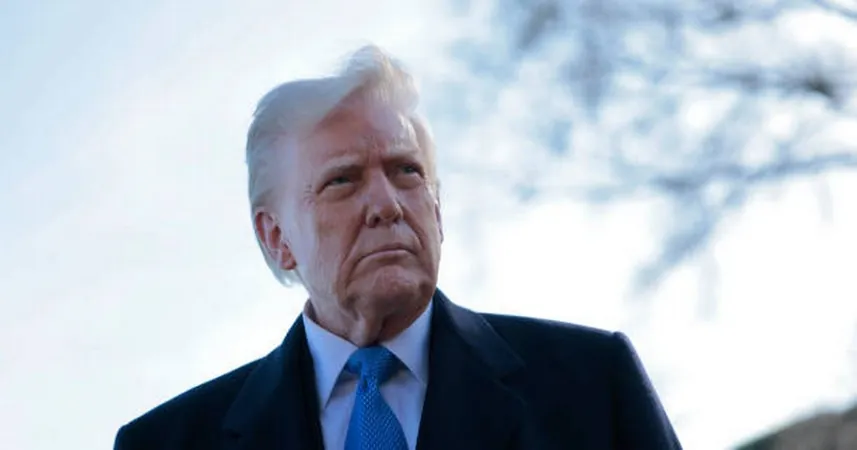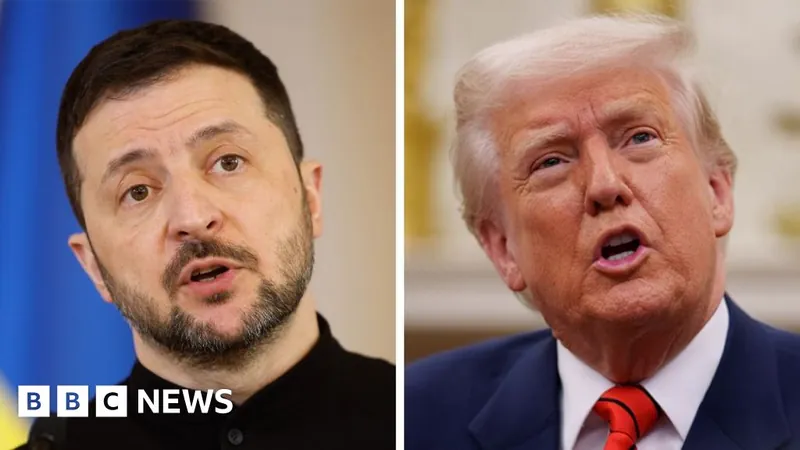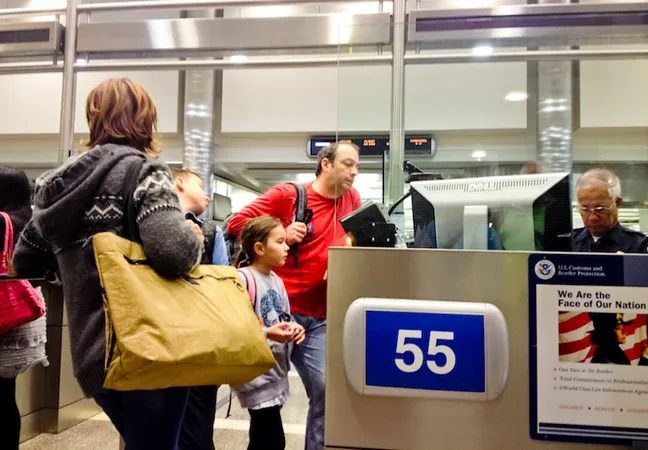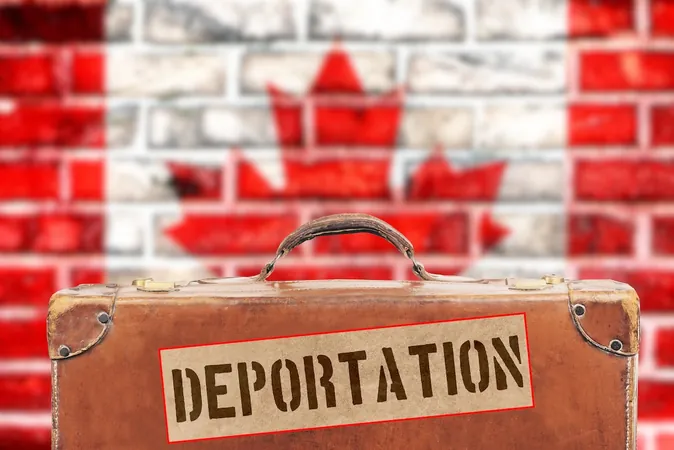
Innocent Venezuelan Soccer Player Deported to El Salvador Over Misinterpreted Tattoo
2025-03-24
Author: Olivia
A shocking incident has emerged involving Jerce Reyes Barrios, a 36-year-old Venezuelan soccer player who was deported from the United States to El Salvador, wrongly accused of being affiliated with a violent gang due to a misinterpreted tattoo.
Barrios, who had been in the U.S. awaiting a ruling on his asylum application, was detained last September by immigration agents from the Department of Homeland Security (DHS). Authorities misidentified a tattoo depicting a soccer ball with a crown, the word "Dios" (meaning "God" in Spanish), and a rosary as evidence of his connection to the Tren de Aragua—a notorious transnational criminal organization from Venezuela, labeled a foreign terror group during Donald Trump's administration.
According to Barrios’ attorney, Linette Tobin, the tattoo artist confirmed the design was inspired by Barrios' admiration for Real Madrid, his favorite soccer team, not any gang symbolism. However, DHS agents cited additional factors for his detention, including a social media post showing Barrios in a hand gesture commonly recognized as "I love you" in sign language but misinterpreted as gang communication.
Despite the lack of any criminal history and supportive evidence, Barrios was initially placed in maximum-security detention. His situation escalated when, on March 15, he was among more than 200 Venezuelan migrants who faced deportation under the Alien Enemies Act, a controversial measure enacted by Trump. On that day, he was sent to El Salvador as part of an agreement with the country’s president, Nayib Bukele, which included transferring detainees to a notorious prison known for its harsh conditions.
Since his deportation, Barrios' family and attorney have struggled to get information about his wellbeing. As of now, they have lost all contact with him, leaving them in a state of confusion and concern about his safety and the upcoming asylum hearing originally scheduled for April 17 in San Diego.
Adding to the family’s distress, Barrios’ uncle revealed that they discovered the deportation through social media videos released by the Trump administration, which showcased the mass deportation of individuals they claimed were involved with Tren de Aragua. This revelation was particularly exasperating for the family, who insist that Barrios’ tattoo was purely related to his passion for soccer and not indicative of any criminal involvement.
Before fleeing Venezuela, Barrios was a professional player with the Perijaneros Fútbol Club and also coached children in soccer. His journey to seek asylum in the U.S. was precipitated by severe persecution he faced for opposing Nicolás Maduro’s regime, where he reportedly suffered torture and imprisonment for his political beliefs.
Newly elected officials and policies have shifted in the U.S. since Trump’s departure, including the discontinuation of the CBP One app, which previously facilitated legal border crossings for asylum seekers. Barrios’ case highlights the ongoing complexities and dangers faced by migrants and the intricate legal system that governs their circumstances.
Concern for Barrios' fate grows as his family remains in the dark about his conditions in El Salvador, where he is possibly facing forced labor. His aunt, recognizing him from prison photos, has voiced her anxiety over his wellbeing, lamenting their inability to communicate or support him during this harrowing time. Barrios' young children, unaware of their father's troubling situation, share sweet memories of him, with his daughter expressing her love in a touching video clip.
This case raises critical questions about immigration policies, the deportation process, and the lives of innocent individuals caught in a system often marred by fear and prejudice. Will Barrios receive the justice he deserves, or will his story be lost in the complexities of immigration enforcement?









 Brasil (PT)
Brasil (PT)
 Canada (EN)
Canada (EN)
 Chile (ES)
Chile (ES)
 Česko (CS)
Česko (CS)
 대한민국 (KO)
대한민국 (KO)
 España (ES)
España (ES)
 France (FR)
France (FR)
 Hong Kong (EN)
Hong Kong (EN)
 Italia (IT)
Italia (IT)
 日本 (JA)
日本 (JA)
 Magyarország (HU)
Magyarország (HU)
 Norge (NO)
Norge (NO)
 Polska (PL)
Polska (PL)
 Schweiz (DE)
Schweiz (DE)
 Singapore (EN)
Singapore (EN)
 Sverige (SV)
Sverige (SV)
 Suomi (FI)
Suomi (FI)
 Türkiye (TR)
Türkiye (TR)
 الإمارات العربية المتحدة (AR)
الإمارات العربية المتحدة (AR)